The vegan diet has gained immense popularity in recent years, with more people choosing to adopt a plant-based lifestyle for various reasons, including health, ethical considerations, and environmental concerns. But what exactly is a vegan diet? In this article, we’ll explore the principles of a vegan diet, its benefits, potential challenges, and tips for successfully transitioning to this lifestyle. Whether you’re considering going vegan or simply curious about this dietary choice, you’ll find all the information you need right here.
Understanding Veganism
What is Veganism?
Veganism is more than just a diet; it is a lifestyle that seeks to eliminate all forms of animal exploitation and cruelty. This includes not only dietary choices but also the use of animal-derived products in clothing, cosmetics, and other aspects of daily life. A vegan diet specifically excludes all animal products, including meat, dairy, eggs, and often honey.
The Philosophy Behind Veganism
The ethical philosophy of veganism stems from a deep respect for animals and a commitment to reducing suffering. Many vegans believe that animals have the right to live free from harm, and they choose to avoid any products that contribute to animal exploitation. Additionally, a growing number of individuals are turning to veganism due to its potential benefits for the environment and human health.
Key Components of a Vegan Diet
Foods Included in a Vegan Diet
A well-planned vegan diet consists of a variety of foods that provide all the essential nutrients. Here are the primary food groups:
Fruits and Vegetables
Fresh, frozen, or dried fruits and vegetables are staples in a vegan diet. They are rich in vitamins, minerals, and antioxidants.
Grains
Whole grains like brown rice, quinoa, oats, and whole grain bread are excellent sources of carbohydrates and fiber.
Legumes
Beans, lentils, chickpeas, and peas are packed with protein, fiber, and essential nutrients.
Nuts and Seeds
Almonds, walnuts, chia seeds, and flax seeds provide healthy fats, protein, and other important nutrients.
Plant-Based Alternatives
This includes plant-based milk (like almond, soy, or oat milk), vegan cheese, and meat substitutes made from tofu, tempeh, or seitan.
Nutritional Considerations
While a vegan diet can provide most of the nutrients needed for optimal health, there are some key nutrients to pay special attention to:
Protein
Ensure adequate protein intake by incorporating legumes, nuts, seeds, and whole grains into your meals.
Vitamin B12
This vitamin is primarily found in animal products, so vegans may need to take a supplement or consume fortified foods.
Iron
Plant-based sources of iron (like lentils and spinach) are not absorbed as efficiently as those from animal products, so pairing them with vitamin C-rich foods can help enhance absorption.
Omega-3 Fatty Acids
Include sources such as flax seeds, chia seeds, and walnuts, or consider an algae-based supplement.
Benefits of a Vegan Diet
Health Benefits
Weight Management
Many people find that a vegan diet helps with weight loss or maintenance, as it is typically lower in calories and saturated fats.
Heart Health
A plant-based diet can lower the risk of heart disease by reducing cholesterol levels and improving blood pressure.
Improved Digestion
The high fiber content of a vegan diet promotes healthy digestion and regular bowel movements.
Reduced Risk of Chronic Diseases
Studies have shown that vegans may have a lower risk of developing certain chronic diseases, including diabetes, hypertension, and certain cancers.
Environmental Impact
Adopting a vegan diet can significantly reduce one’s carbon footprint. Animal agriculture is a major contributor to greenhouse gas emissions, deforestation, and water pollution. By choosing plant-based foods, individuals can help mitigate these environmental issues.
Ethical Considerations
For many, the decision to go vegan is rooted in ethical beliefs about animal rights. By avoiding animal products, vegans actively oppose factory farming and promote a more compassionate approach to food.
Challenges of a Vegan Diet
Social Situations
Eating out or attending social events can be challenging for vegans. It’s essential to communicate dietary preferences in advance and research restaurant options.
Nutritional Gaps
Without careful planning, a vegan diet can lead to nutritional deficiencies. It’s crucial to educate oneself about balanced nutrition and consider supplements when necessary.
Tips for Transitioning to a Vegan Diet
Start Gradually
If you’re new to veganism, consider starting with “Meatless Mondays” or gradually phasing out animal products.
Educate Yourself
Read books, follow vegan blogs, and watch documentaries to understand the benefits and challenges of veganism.
Experiment with Recipes
Try new plant-based recipes to discover a variety of flavors and meals.
Join a Community
Engage with other vegans through social media or local meetups for support and inspiration.
Be Patient
Transitioning to a vegan diet is a journey. Allow yourself time to adjust and learn.
Embracing a vegan diet can be a rewarding journey that not only benefits your health but also contributes to the welfare of animals and the planet. By understanding the principles of veganism, planning balanced meals, and being mindful of nutritional needs, you can enjoy the many advantages of a plant-based lifestyle. Whether you’re ready to make the switch or just curious, the world of veganism is rich with opportunities for exploration and growth.










